Most people can’t point to Georgia on a map. And of those who can, pretty much nobody can decide if the tiny but lovely nation is in Europe or Asia.
I lived there for almost a year, and even I’m not fully certain. So to clear up (some of) the confusion, I’ve covered all the continental controversy in this guide.
In this article:
- Where is Georgia?
- Is Georgia in Europe or in Asia?
- What separates Europe and Asia?
- Can we culturally consider Georgian as European or Asian, or both, or neither?
Read on to find out!
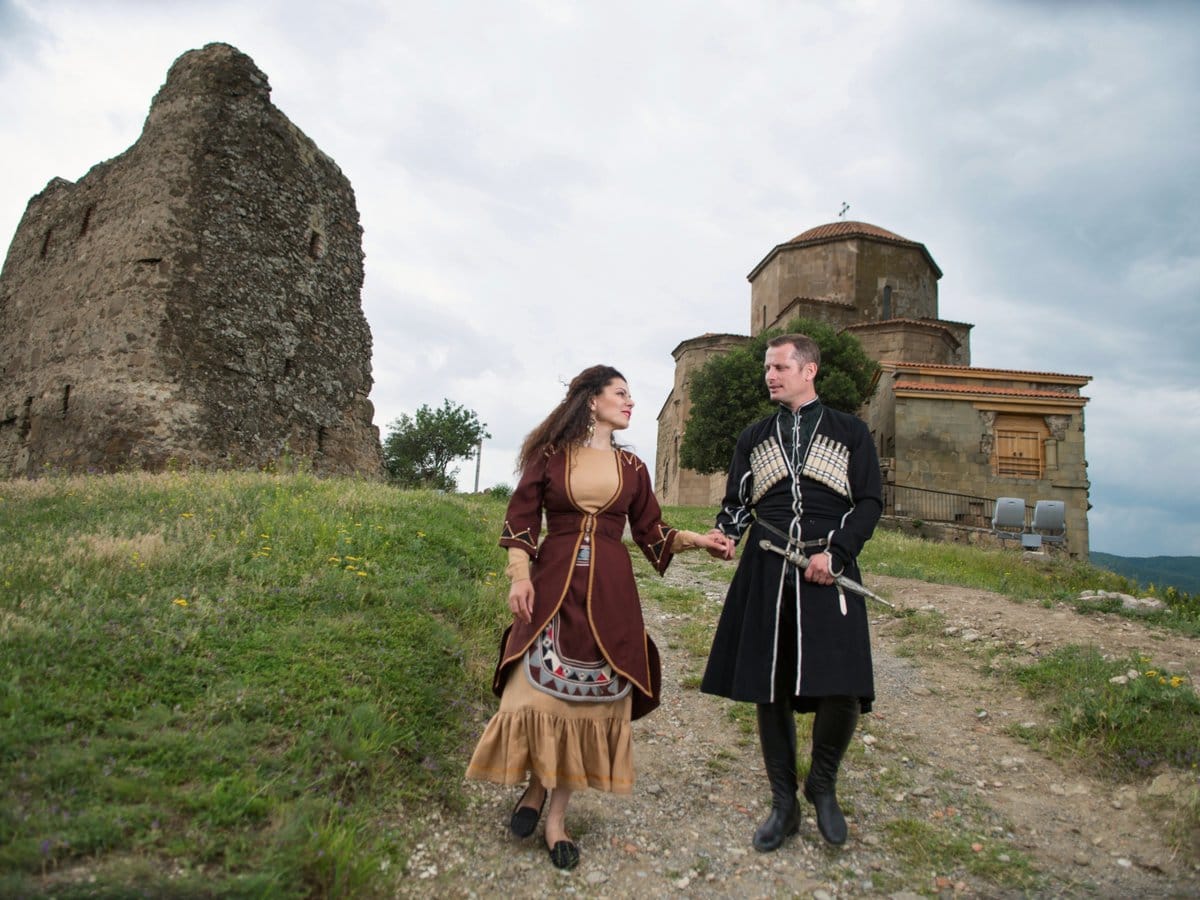
Where is Georgia?
Alright, the answer to this question is pretty simple… but the nation’s strange geographical location is the main reason behind this article’s controversial conundrum.
The country of Georgia is located in the region of Eurasia and specifically in the South Caucasus. The Republic of Georgia is bordered by the Black Sea to the west, Turkey and Armenia to the south, Azerbaijan to the east, and Russia to the north.
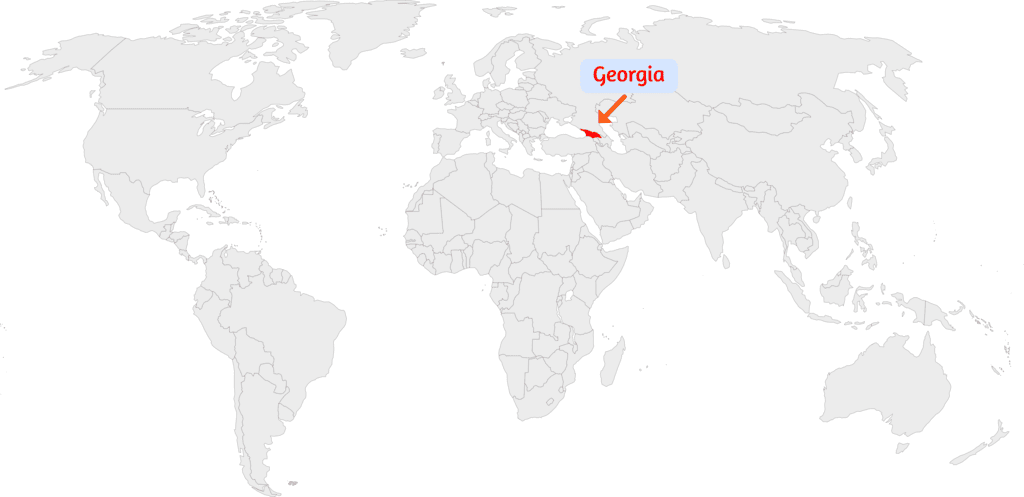
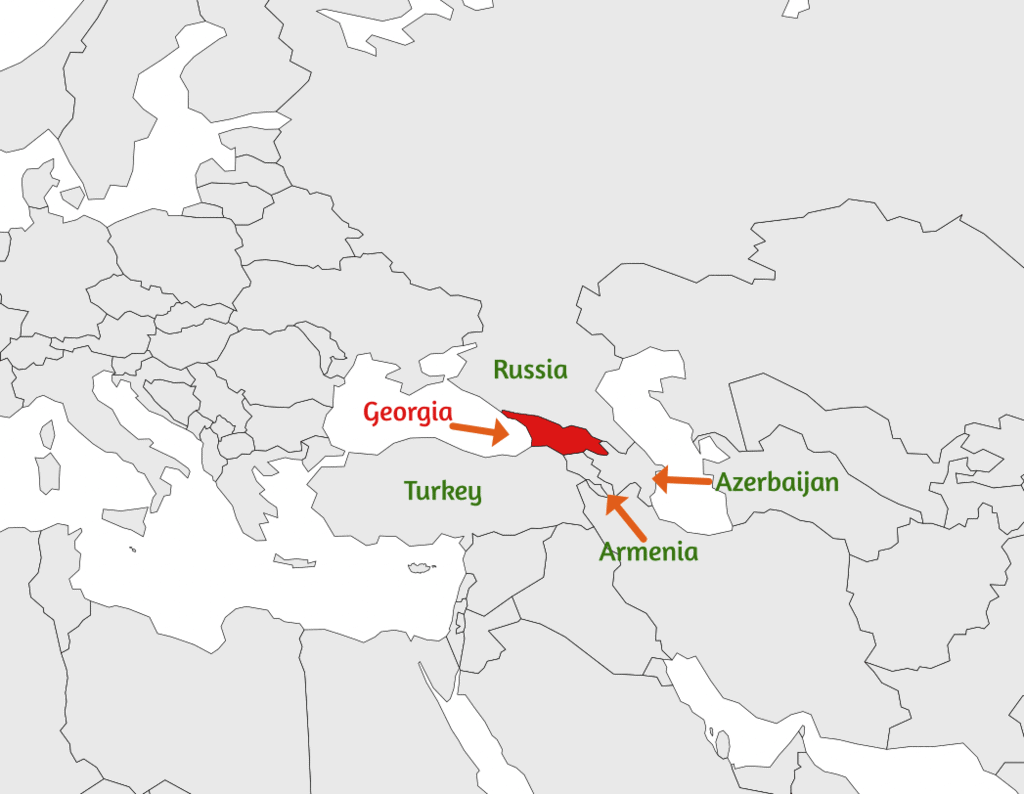
As you can see from the useful little map we’ve provided, Georgia borders Turkey to the east, and the majority of people seem to agree that most of Turkey is an Asian place rather than a European one.
But it also borders Russia to the south, and most people seem to agree that Western Russia is mainly a European place rather than an Asian place… even though Russia extends east beyond places like China, Korea, and Japan… and is definitely partially in Asia… (but that’s a conversation for a different time).
Also bordering Georgia, you have Armenia and Azerbaijan. Most people seem to think Azerbaijan is Asian. But much like Georgia, people can’t seem to decide if Armenia is Asian or European.
As you can see, these three nations (that’s Georgia, Armenia, and Azerbaijan, if you’re struggling to keep track) are at a strange geographical crossroads, sandwiched between small seas, big mountain ranges, and lots of neighboring nations with vastly different cultures.
Yep, I know… that’s cleared absolutely nothing up. You’re welcome, I guess.
To reach a vaguely more conclusive answer, we next need to think about how (and why!) ‘Asia’ and ‘Europe’ are defined. This brings us to…
Are Europe and Asia Different Continents?
Yes. Europe and Asia are different continents… or, at least, that’s what we’re taught, and that’s (subsequently) what most people believe*.
But geographically speaking, Europe and Asia are actually one unique continent called Eurasia. Eurasia is the largest continental landmass on earth, and 5 billion people, or 70% of the whole human population live there.
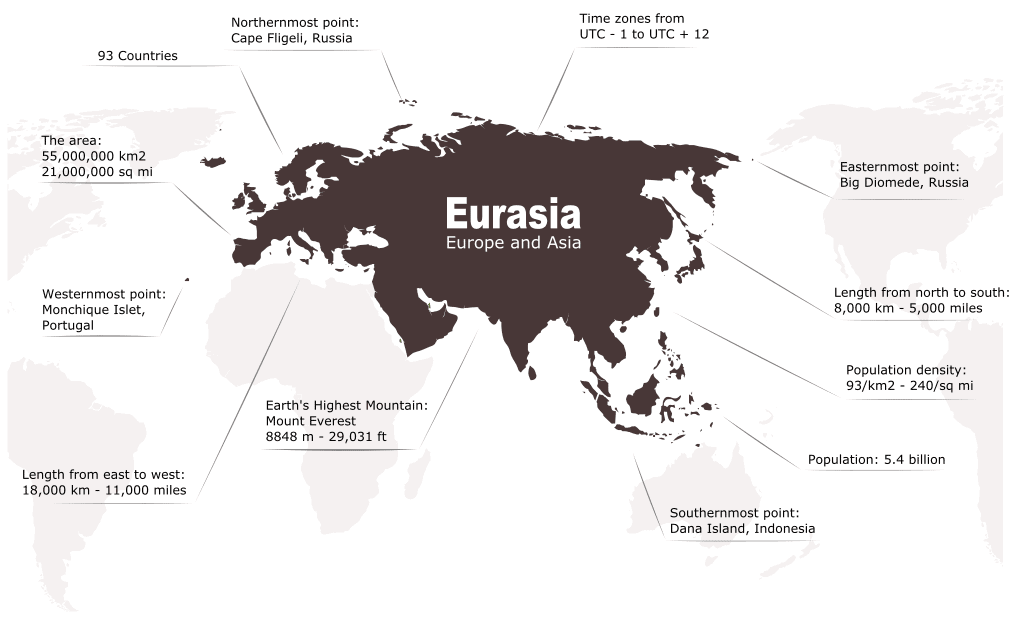
It’s hard to geographically separate Europe and Asia as the designation of the ‘border’ between the two (as borders do) has changed numerous times over the course of history.
Even now, no one can really seem to decide where this border is. Typically, a single continent is defined as “one of the larger continuous masses of land” (source)… but here’s where the trouble starts: Europe and Asia are collectively made up of one continuous mass of land.
One of the most common ways to therefore define the border (and, in recent history, the most popular way to define the border) between Asia and Europe is by using the Ural Mountains (which we’ve highlighted on the map below).
This Russian mountain range leads into the Ural River… which then runs into the Caspian Sea. One definition claims that the vague border formed by the “Ural Mountains-Ural River-Caspian Sea” line is what separates the two continents… which, as you can see, would firmly place Georgia in Europe.
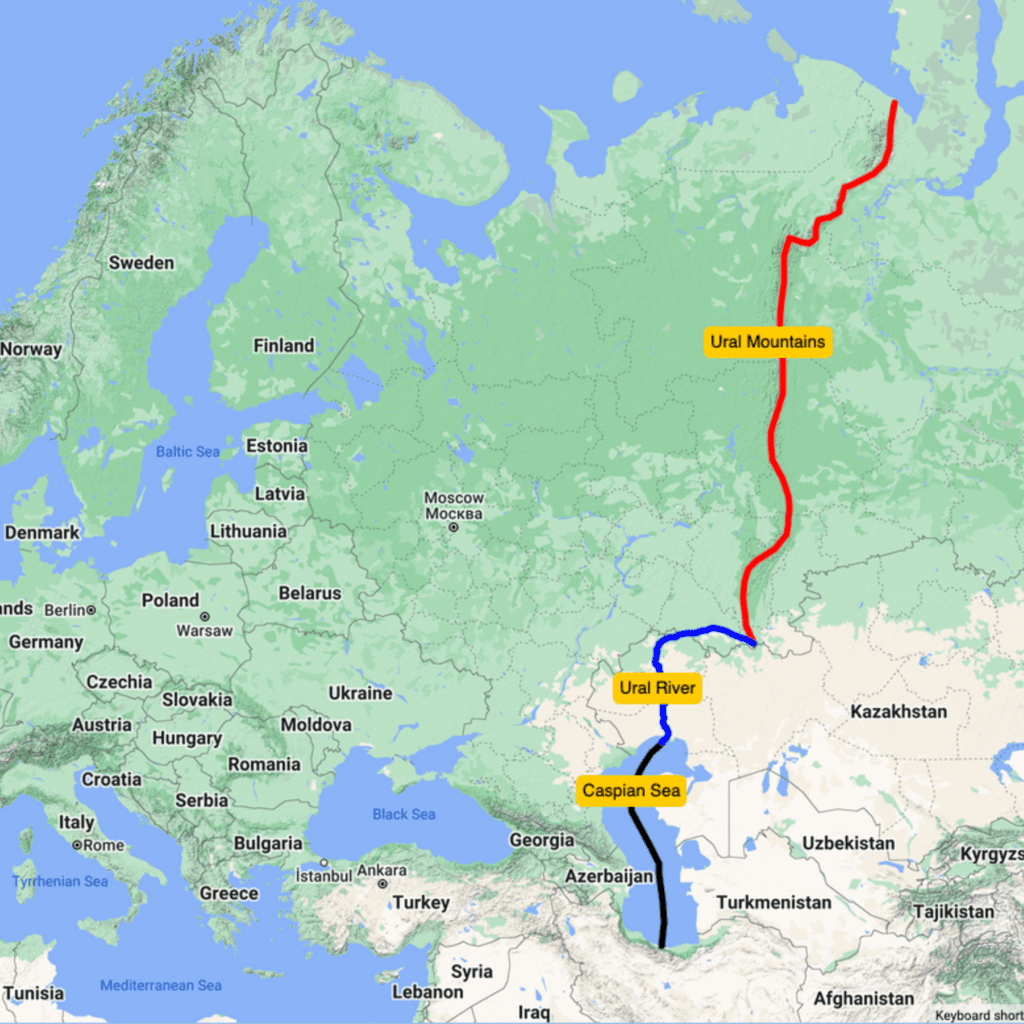
A second definition states that the Caucasus mountains are the definable border between Europe and Asia.
But because many of those mountains lie inside of Georgia, that doesn’t really clear anything up for us… except to maybe prove that, as some people claim, Georgia is a transcontinental nation that sits in both Europe and Asia (but also possibly in neither of those two places).
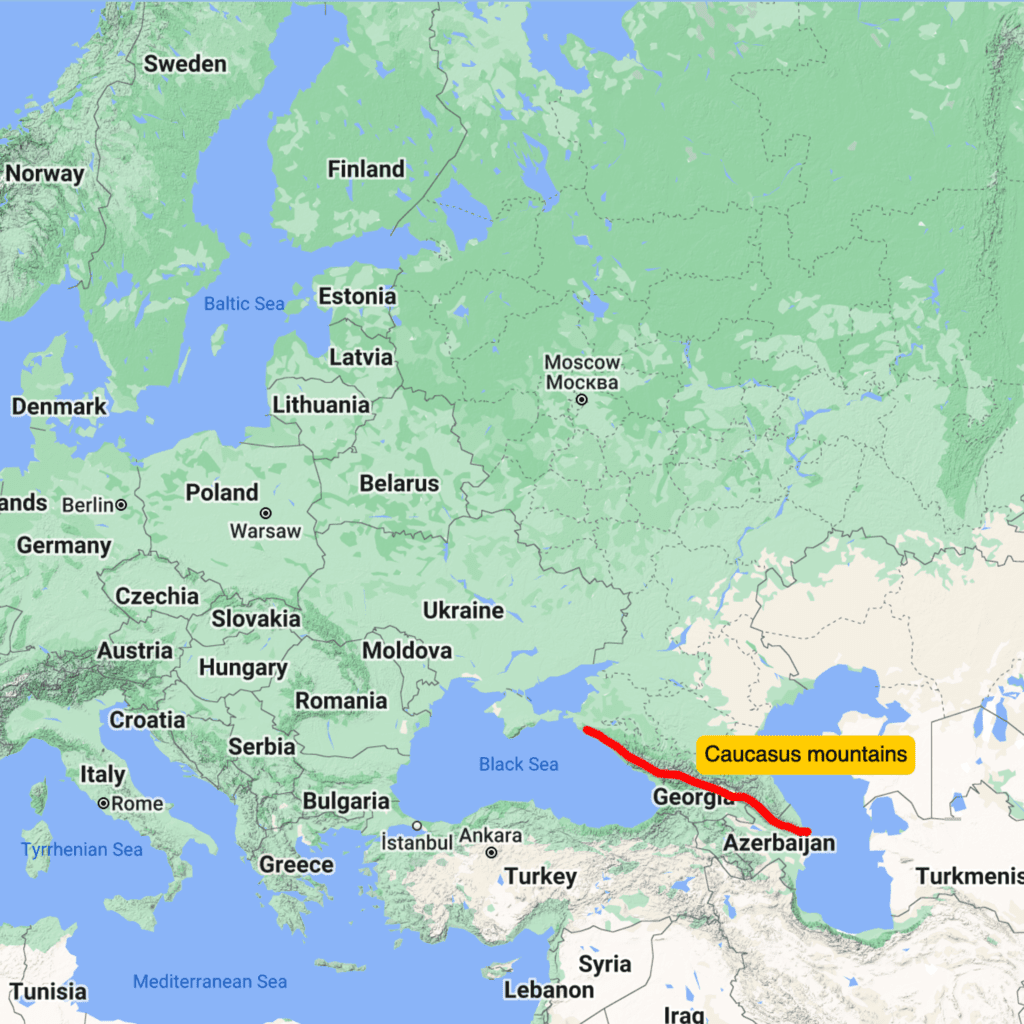
These Caucasus mountains are pretty complicated in themselves and we don’t have enough time or space here to present them in detail. So you can read Britannica’s article to better understand these mountains and their region.
A third opinion considers that the border is instead defined by the line formed by the Aegean Sea, the Sea of Marmara, and the Black Sea. This would firmly place Georgia in Asian territory.
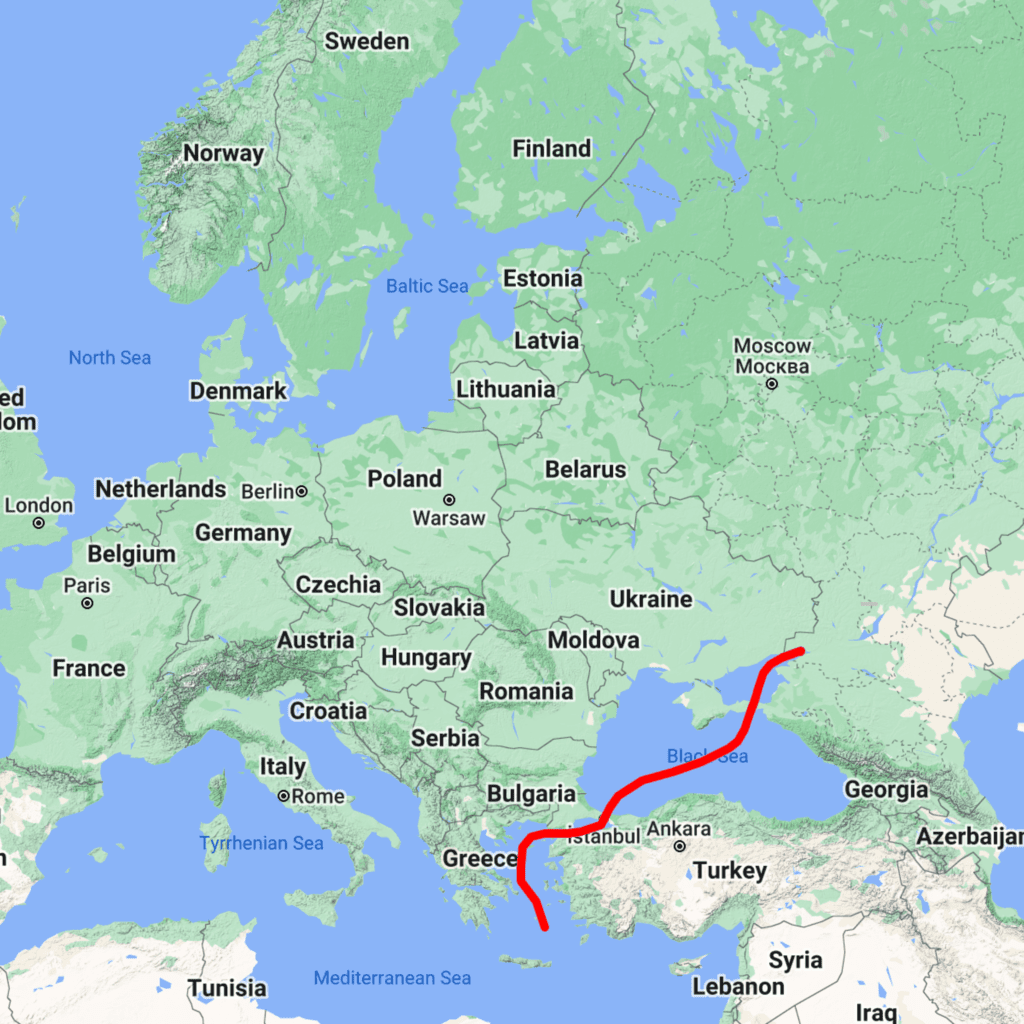
Other people think the border can or should be defined by some weird concoction of all these geographical points. In general, there are lots of landmasses and landmarks that could form potential border-marking points (and have formed these points during various periods of history).
For these complex geographical reasons, it’s sometimes easier to separate Asia and Europe culturally, instead of along arbitrary (and uncertain and ever-changing) geographical lines.
*Remember the asterisk I placed at the beginning of this section? To make things even more complicated, I’m rounding off this section by telling you that, although we largely accept Europe and Asia as two separate continents, some geographers think differently. Because the borders between Europe and Asia are geologically arbitrary, and because these borders can change over time, these geographers prefer to clump the two continents together into the one giant continent of Eurasia (which, considering the mixed identity of lots of nations here, sorta makes sense).
Is Georgia in Europe or in Asia?
As you’ve probably noticed by now, what is and isn’t Europe (or Asia) isn’t exactly clear.
Because of this geographical complexity and controversy, it’s probably best to classify Georgia’s identity according to its culture, history, and religion… rather than some arbitrary decision based on who had the most powerful army or empire at any given time.*
*After the Mongols captured Georgia, the region probably had more in common with contemporary Asian cultures. The same applies when there was an Ottoman invasion. But when it was part of the USSR, the world probably considered Georgia to be categorically European. So, as I say, these borders, identities, and opinions are ever-changing.

But even from a cultural perspective, this is a pretty tricky question to answer. That’s (of course) because, as the influences upon Georgia have shifted and changed over time, the identity of Georgia has shifted and changed over time… and that’s left behind a nation that still feels like a strange hybrid of Asian and European cultures.
Here are some of the things that make people think Georgia is more European than Asia:
… but here are some of the things that make people think Georgia is more Asian than European:
- On its eastern side, it has some desert-like landscapes
- Its food is more similar to Persian, Afghan, and Turkish food than it is to European food
- It borders Turkey!
- Culturally, the nation just ‘feels’ very different from many other parts of eastern Europe
- Its language sounds more rooted in Asian languages than in European languages
Personally, to me, Georgia definitely feels more European than Asian… but that’s just, like, my opinion man. And living there for a year doesn’t make me an expert, so you’re fully free to ignore me.
Maybe it’s best to accept that Georgia (and Armenia and Azerbaijan) aren’t really ‘in’ Asia or Europe… and to acknowledge that continental borders are just imaginary lines that have been completely made up (for the simple sake of convenience and classification).
These three countries don’t really fit into the continental system… but when the system makes no sense (and when the system isn’t really fit for its purpose), why would they?
It’s also worth noting that these three countries don’t even really fit together as a mini region. Despite being three tiny countries (Georgia has a population of around 4 million, while Armenia and Azerbaijan have populations of 3 million and 10 million respectively), they each have their own language, their own alphabets, and their own very distinct identities.
Is Georgia in Europe or in Asia? Final Thoughts
So is Georgia in Europe, or in Asia? No one really knows, I don’t really know, and, now, even you don’t really know!
For some much-more-concrete information on one of my favorite places, check out our guides to what Tbilisi is famous for, 17 reasons I love the city, and our bumper guide on whether or not Georgia is safe to visit.
Thanks for reading, thanks for stopping by at Travelness, and thanks for being so incredible and brilliant as always.